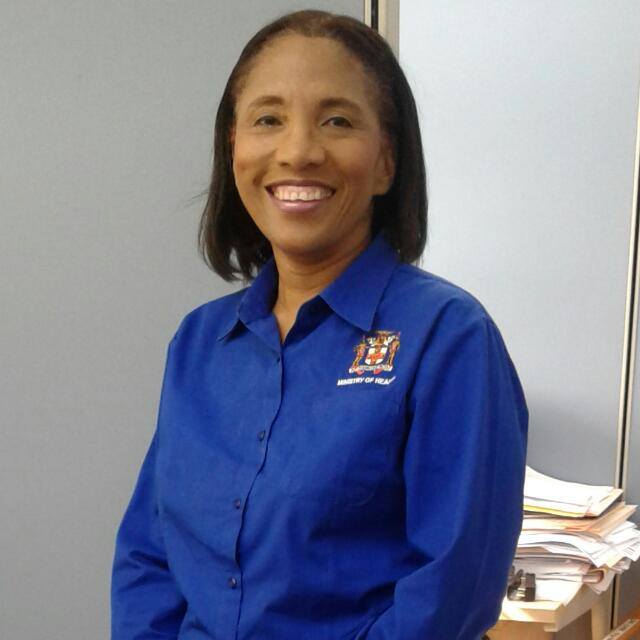Parents Cautioned not to Ignore Signs of Mental Health Disorders in Children
By: , August 1, 2021The Key Point:
The Facts
- Director of Child and Adolescent Mental Health in the Ministry of Health and Wellness, Dr. Judith Leiba, gave the advice during a recent interview with JIS News.
- Among the most common disorders identified in children or teenagers in Jamaica are attention deficit hyperactivity disorder (ADHD), conduct disorder, major depressive disorder, post-traumatic stress disorder (PTSD), and anxiety disorder.
The Full Story
Parents and guardians are being cautioned not to ignore the early signs that their child may have a mental health disorder in order to avoid long-term psychological damage.
Director of Child and Adolescent Mental Health in the Ministry of Health and Wellness, Dr. Judith Leiba, gave the advice during a recent interview with JIS News.
Among the most common disorders identified in children or teenagers in Jamaica are attention deficit hyperactivity disorder (ADHD), conduct disorder, major depressive disorder, post-traumatic stress disorder (PTSD), and anxiety disorder.
Dr. Leiba says that due to the stigma surrounding mental illness, many people do not recognise the early signs of disorders and inadvertently, allow the condition of the child to worsen.
She notes for example, that a child, who struggles with PTSD from experiencing a traumatic event can progress into developing conduct disorder.
Conduct disorder causes a child to display aggressive, destructive, and deceitful behaviours that can violate the rights of others.
“I would say conduct disorder is one of our top diagnoses from our clinics. It is not an infrequent disorder, and we recognise it as one of the more difficult disorders to treat,” Dr. Leiba says.
She adds that children suffering from conduct disorder may steal, skip school, become aggressive and even cause their parents to become afraid of them.
“We have not proven that there is an actual chemical imbalance [that causes this disorder.] It just seems to be kind of an endpoint [due to lack of treatment],” she shares.
Dr. Leiba notes that while extremely disruptive children are frequently referred to the mental health clinics, because the signs are obvious, “the ones who are quiet, withdrawn and very compliant may be suffering just as much, but they may not get referred as often.”
This, she says, is why the Ministry continues to raise awareness about mental health so that parents can be prepared to identify any signs of concern in their children.
Dr. Leiba shares that some disorders such as anxiety can begin to develop as early as age five. This disorder causes an individual to feel constant, overwhelming fear and panic.
It is often not diagnosed until the child is an adolescent or adult, however, separation anxiety can be a warning sign of a developing anxiety disorder.
Children who struggle with separation anxiety may cry excessively when separated from their parents and may even worry about whether their parents will die and leave them alone.
“Some children, when they get older, they vomit and have severe belly pain when it’s time to go to school [away from home],” Dr. Leiba points out.
Citing other mental health disorders, she notes that after puberty, many girls may begin to suffer from major depressive disorder. She says that hormonal changes in the female body or suffering sexual abuse may be a factor in the development of the disorder.
Dr. Leiba is cautioning parents and guardians not to be misguided on how to help their children with this kind of disorder.
“We have a misconception that you can just snap out of depression, or you need to pray or work more to get out of it. But what we don’t realise is that once it becomes major depressive disorder, then you really need some professional help,” she points out.
She notes that the early signs that an adolescent may be developing major depressive disorder include becoming withdrawn or aggressive, no longer finding pleasure in their usual hobbies and having morbid thoughts constantly for over two weeks.
Several options are employed in treating mental health disorders following a full assessment of the child, the family and in some cases, the school environment, Dr. Leiba says.
Treatment ranges from pharmacotherapy, where children are required to take medication, or psychotherapy, which involves talking with a psychiatrist or psychologist, cognitive behaviour therapy, doing behaviour modification programmes with parents, exercising, among other things.
“At the early age group, we employ other forms of treatment as well. A lot of these children are what we called non-verbal, so we may make them draw to vent their feelings. Some people employ drama, dance, or play therapy,” she shares.
“We also may have to get what we call a psychometric assessment to see if they have a learning problem, to make sure we know what we’re dealing with,” Dr. Leiba tells JIS News.
She notes that social media can be a useful tool as it provides an avenue through which young people can vent their emotions.
“I think because of social media people are not as inhibited about what’s happening to them. They talk more about their feelings, and I think the younger generation is more on point about mental disorders and how it can affect everybody and how they can seek help,” she says.
There were 8750 visits to child guidance clinics across the country last year for various mental health support services.
The Ministry of Health continues to encourage parents, who identify warning signs in their children, to seek assistance at any of the comprehensive health centres island wide.
A full listing of the locations and opening hours are available on the Ministry’s website at https://www.moh.gov.jm/.
Dr. Leiba is further encouraging persons to make use of the Ministry’s 24/7 call-only mental health and suicide prevention helpline, 1-888-NEWLIFE or the child and teenager call and text helpline 1-888-SAFESPO.




